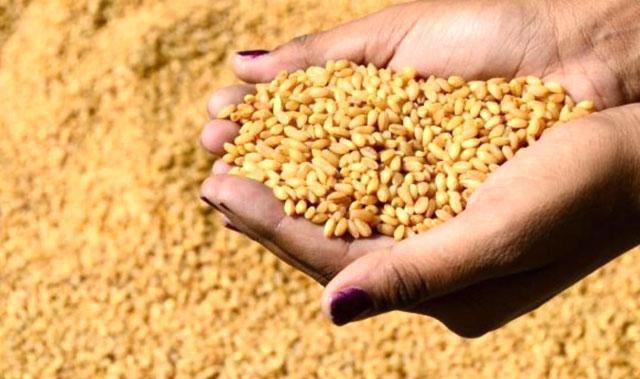- Local News
- Tue-2021-08-31 | 07:30 pm

Nayrouz News Agency :
The government aims to increase agricultural output by more than 20 per cent by 2023 compared to 2020 levels.
The government unveiled the economic priorities programme for 2021-2023 on Sunday, which aims to support economic growth and recovery from the COVID-19 pandemic.
The programme assessed the state of the agricultural sector, which has witnessed slow growth rates over the last five years and only contributed between 4.3 per cent and 4.7 per cent to the gross domestic product (GDP).
Jordan, a major importer of agricultural products, has "delayed self-sufficiency”, which could jeopardise Jordan’s food security. Seventy per cent of Jordan’s arable land is uncultivated and Jordanian labour constitutes only 40 per cent of the total workforce in agriculture sector, the economic plan noted.
In the programme, the government set a goal to increase self-sufficiency and food security to ensure resilience in the Kingdom, especially in the face of economic or political shocks.
The programme indicated that the main challenges in the agricultural sector are: The dominance of non-Jordanian labour and informal employment arrangements, the lack of support for marketing and promotion (both internal and external packaging, marketing and sales channels), insufficient capital to fund new initiatives, the lack of secure access to water source, and the lack of modern technology and skill sets.
The government aims to help farmers adopt modern agricultural technology through expanding agricultural credit. The government plans to do this through loans of JD10 million to agricultural initiatives that use automated, digital, or modern technologies or procedures. This will start in the fourth quarter, this year.
A local farmer, who preferred anonymity, indicated that the agricultural sector is in desperate need of support, especially after the pandemic.
"I am glad the government is taking a step towards the recovery of our sector, as it is very important,” he told The Jordan Times on Monday.
He also noted other problems farmers face. "The quantity of water distributed to farmers is decreasing. Irrigation water reaches us two or three days a week for a period of six hours, which is only 12 hours a week. These quantities are much less than previous years, as we used to get 30 hours of irrigation per week,” he said.
The farmer rested hope on the new programme to find solutions for the current water scarcity problem.
Mohammad Qawasmi, a produce shop owner in Amman said that Jordanian production has been lower than previous years. He expressed his hope for the government’s plan to improve the agricultural sector.
Qawasmi stressed how important local production is for food security, especially given the rising sea freight prices that could affect imports and exports.
"I believe that we will depend more on our local production in the upcoming period. The demand is always high for food. The government’s plan is a promising start to continue providing for our country,” Qawasmi told The Jordan Times on Sunday.
He also pointed out that many Jordanians prefer locally harvested fruit and vegetables, making it important to invest in the Kingdom’s agriculture sector.
Jordan faces unique food security challenges due to its low agricultural production, its water scarcity and a growing, young, population, according to UNICEF.









